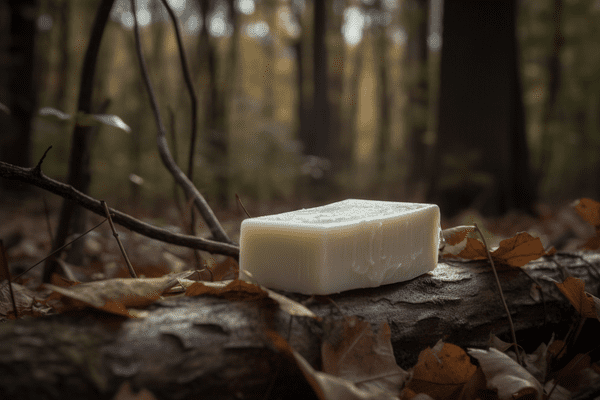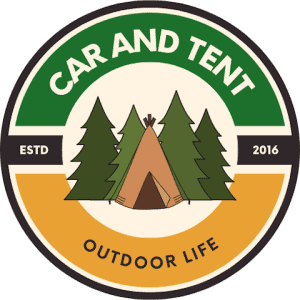
Biodegradable soaps for camping are eco-friendly alternatives to conventional soaps that can negatively impact the environment. These soaps are specifically designed to break down naturally over time, causing minimal harm to the surrounding ecosystem. They are ideal for camping and outdoor activities, as they help preserve the natural beauty of our environment and protect water sources from pollution.
Here are some key features and aspects of biodegradable soaps for camping:
- Ingredients: Biodegradable soaps are typically made from plant-based materials and natural ingredients, such as coconut oil, olive oil, or aloe vera. These ingredients allow the soap to break down more easily and safely in the environment compared to synthetic chemicals found in conventional soaps.
- Versatility: Many biodegradable soaps are multi-purpose and can be used for a variety of cleaning tasks, such as washing your body, hair, dishes, or even clothes. This versatility makes them an ideal choice for campers who want to pack light and reduce waste.
- Concentration: Biodegradable soaps are often highly concentrated, requiring only a small amount to be effective. This not only makes them long-lasting but also helps minimize the potential impact on the environment.
- Packaging: Eco-friendly soaps often come in sustainable packaging, such as recyclable or biodegradable containers. This further reduces their environmental footprint and makes them more suitable for camping and outdoor activities.
- Responsible use: Although biodegradable soaps are better for the environment than conventional ones, it’s essential to use them responsibly. Avoid using soap directly in rivers, lakes, or streams, as even biodegradable soap can harm aquatic life. Instead, use a portable camp sink or basin, and dispose of the soapy water at least 200 feet away from water sources to minimize pollution.
Factors To Consider When Choosing a Biodegradable Soap
When choosing a biodegradable soap for your camping or outdoor adventures, it’s essential to consider several factors to ensure that you select the best option for your needs and the environment.
Here is a quick table that shows the important factors to keep in mind when buying a biodegradable soap:
| Factor | Description | Example Considerations |
|---|---|---|
| Ingredients and Environmental Impact | Choose soaps made from natural, plant-based ingredients that have a lower environmental impact. | – Plant-based ingredients – No synthetic chemicals – Phosphate-free |
| Versatility and Multi-Use Potential | Opt for multi-purpose soaps that can be used for various cleaning tasks to save space and reduce waste. | – Body wash – Shampoo – Dishwashing soap – Laundry detergent |
| Concentration and Efficiency | Select highly concentrated soaps that require less product for each use, making them long-lasting and eco-friendly. | – Small amount needed for effectiveness – Long-lasting formula |
| Packaging and Portability | Consider soaps with sustainable packaging and that are compact and lightweight for easy transportation. | – Recyclable or biodegradable packaging – Compact size for easy packing |
By considering these factors, you can make a more informed decision when selecting a biodegradable soap for your camping or outdoor adventures. The right soap will not only help you maintain personal hygiene during your trip but also contribute to preserving the environment and protecting the delicate ecosystems you encounter.
How to Use Biodegradable Soaps Responsibly While Camping
Using biodegradable soaps responsibly while camping is crucial to minimize the impact on the environment and protect the delicate ecosystems you encounter. Even though biodegradable soaps are designed to break down more easily than conventional soaps, they can still cause harm to aquatic life and natural habitats if not used properly.
Keep Away From Natural Water Sources
First and foremost, avoid using soap directly in rivers, lakes, or streams. Even biodegradable soap can harm aquatic life and contribute to water pollution if introduced directly into natural water sources. Instead, use a portable camp sink, basin, or collapsible bucket to collect water and perform your washing tasks. By keeping soapy water away from natural water sources, you help protect the ecosystem and minimize your impact on the environment.
Water Disposal
When disposing of soapy water, it’s important to follow the Leave No Trace principles. This means disposing of your soapy water at least 200 feet (approximately 60-70 steps) away from any water sources, such as lakes, rivers, or streams. Dig a small hole or use a cathole, about 6-8 inches deep, to pour the soapy water into. This allows the soil to act as a natural filter, breaking down the soap and minimizing its impact on the environment.
Use Sparingly
It’s also essential to use biodegradable soap sparingly. Since these soaps are often highly concentrated, a small amount is usually sufficient to get the job done. By using only the necessary amount of soap, you not only save resources but also reduce the potential harm to the environment.
Finally, be mindful of local regulations and guidelines regarding the use of soap and the disposal of wastewater. Some protected areas or sensitive ecosystems might have specific rules in place to ensure the preservation of their natural habitats. By following these guidelines and using biodegradable soaps responsibly, you can enjoy your camping adventures while minimizing your impact on the environment.
The Best Biodegradable Soaps for Camping
Here are 3 biodegradable soaps you might want to consider for your next camping trip:
Dr. Bronner’s Pure-Castile Liquid Soap: Dr. Bronner’s is a popular choice for campers due to its natural ingredients, concentrated formula, and versatility. Made with organic oils such as coconut, olive, and hemp, this soap is gentle on the skin and environment. The 18-in-1 formula can be used for various tasks, including washing your body, hair, dishes, and laundry. The soap comes in a range of natural scents, including peppermint, lavender, and citrus.
Peppermint is my favorite and the smell of peppermint is even said to keep bugs and mice away.
Sierra Dawn Campsuds Outdoor Soap: Similar to the original Campsuds, Sierra Dawn’s version of this popular camping soap is biodegradable, versatile, and made from plant-based ingredients. Its concentrated formula is effective for various cleaning tasks, including washing your body, hair, dishes, and laundry. The compact bottle and secure lid make it easy to pack and transport for outdoor adventures.
Joshua Tree Eco Soap: Joshua Tree’s eco-friendly soap is made from natural and organic ingredients, including coconut and sunflower oils. It is a versatile option for camping, as it can be used for personal hygiene, dishwashing, and even laundry. The soap is gentle on the environment, free from synthetic fragrances, and comes in a reusable aluminum bottle.
I prefer the tea tree scented one. I’ve also read claims that tea tree oil can keep lice away but I’m not willing to place any bets on that.
Not sure which to choose? Here is an easy-to-read table for you to compare them.
| Rank | Brand & Product Name | Key Features |
|---|---|---|
| 1 | Dr. Bronner’s Pure-Castile Liquid Soap | – Natural ingredients (organic oils) – Concentrated 18-in-1 formula – Versatile use – Variety of scents available |
| 2 | Sierra Dawn Campsuds Outdoor Soap | – Plant-based ingredients – Concentrated formula – Versatile use – Compact bottle and secure lid |
| 3 | Joshua Tree Eco Soap | – Natural and organic ingredients – Versatile use – Free from synthetic fragrances – Reusable aluminum bottle |
Still can’t decide which biodegradable soap to buy? I personally go back and forth between Dr. Bronner’s and Campsuds. Bronner’s smells better and Campsuds is cheaper. If you only need a little bit though, you can buy Joshua Tree soap in as little as 2 ounces and the tea tree scented one smells pretty nice.
Alternatives to Biodegradable Soap
While biodegradable soaps are a great eco-friendly choice for campers, there are also several alternatives that can be used to minimize your environmental footprint even further. These alternatives can be especially helpful in situations where using soap may not be ideal or allowed due to regulations in protected areas or sensitive ecosystems.
Natural Cleaning Agents
One alternative to biodegradable soaps is using natural cleaning agents, such as sand, ash, or smooth stones. Sand and ash can be used as gentle abrasives to scrub dishes or even your skin, removing dirt and grime without the need for soap. Smooth stones can also be used to rub off stubborn dirt from dishes, pots, or pans. When using these natural cleaning agents, always ensure that you dispose of the waste materials responsibly, following the Leave No Trace principles.
Waterless Cleaning Methods
Waterless cleaning methods are another viable alternative to using biodegradable soaps. For personal hygiene, consider using a damp cloth or sponge to wipe down your body. This method can be surprisingly effective at removing dirt and sweat without the need for soap. For cleaning dishes, scrape off food residue using a spatula or the edge of a utensil, then wipe the surface clean with a damp cloth. If necessary, you can heat some water and use it to rinse the dishes for a more thorough cleaning.
Eco-friendly Wipes
Eco-friendly wipes are another option for campers who want to minimize their use of soap. There are various types of biodegradable and compostable wipes available on the market, some of which are specifically designed for camping and outdoor activities. These wipes can be used for personal hygiene or cleaning surfaces, like dishes or cookware. Keep in mind that, although these wipes are more environmentally friendly than traditional ones, they still need to be disposed of properly, ideally in a designated trash bag or container.
By exploring these alternatives to biodegradable soaps, you can further reduce your impact on the environment during your camping adventures. Adopting a combination of eco-friendly practices and responsible camping habits will contribute to preserving the natural beauty of the outdoors for future generations to enjoy.
Need some tips on how to shower while camping? Check out this post https://www.carandtent.com/how-to-shower-when-camping-stay-clean-while-you-camp/
